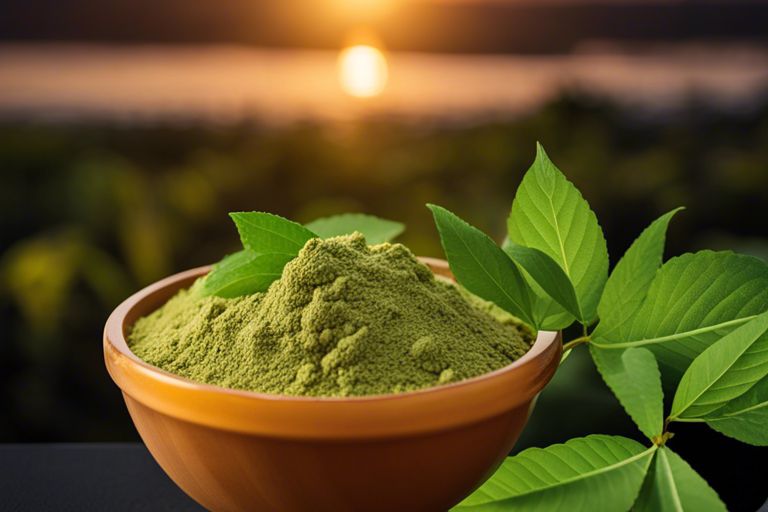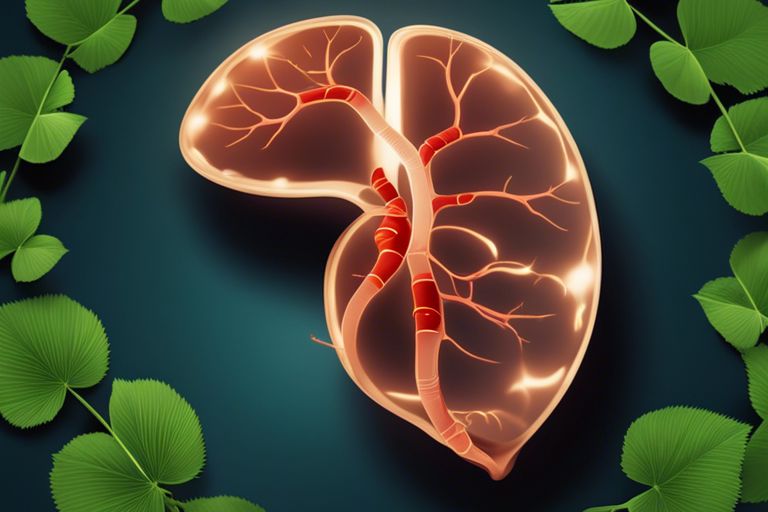Just as kratom gains popularity for its potential benefits, it’s crucial to understand its potential effects on the liver. Research shows that kratom can cause liver damage in some users, especially when taken in large doses or in combination with other substances. Monitoring liver function and keeping doses moderate are imperative for anyone using kratom to avoid serious liver issues.
Key Takeaways:
- Kratom can have harmful effects on the liver: There have been reported cases of liver damage and even failure associated with kratom use.
- Individuals with pre-existing liver conditions should use caution: Those with liver diseases or conditions may be at a higher risk of experiencing adverse effects from kratom.
- Monitoring liver function is important for kratom users: Regular liver function tests are recommended for individuals who choose to use kratom, to ensure the health of the liver is not being compromised.


What is Kratom?
Before delving into the effects of kratom on the liver, it is vital to understand what kratom is. Kratom is a tropical tree (Mitragyna speciosa) native to Southeast Asia. It belongs to the coffee family, and its leaves have been traditionally used for their medicinal properties.
How Hard is Kratom on the Liver: Assessing its Impact …
Origin and History
History: Kratom has a rich history in Southeast Asian countries like Thailand, Malaysia, and Indonesia. It has been used for centuries by indigenous populations for its stimulant and pain-relieving effects. In traditional medicine, kratom was often brewed into teas or consumed raw to alleviate various ailments.
Chemical Composition
Kratom: Kratom leaves contain compounds called alkaloids, with mitragynine and 7-hydroxymitragynine being the most abundant and biologically active. These alkaloids interact with opioid receptors in the brain, producing both stimulant and sedative effects depending on the dose. Kratom also contains other compounds like paynantheine, speciogynine, and mitraphylline that contribute to its overall effects.
Another important detail about kratom’s chemical composition is that it can vary depending on the strain, region of growth, and drying process. This variability can impact the potency and potential effects of the kratom product consumed.
How Kratom Affects the Liver
Metabolism and Bioavailability
One aspect of how kratom affects the liver is its metabolism and bioavailability. When kratom enters the body, it undergoes metabolism primarily in the liver before it is circulated to other parts of the body. The compounds in kratom are broken down by enzymes in the liver, which can affect how the active ingredients in kratom are processed and utilized by the body.
Hepatotoxicity Risks
Liver health is a crucial consideration when discussing the effects of kratom. While kratom has been used for centuries in Southeast Asia, there have been increasing reports of hepatotoxicity associated with its use in Western countries. The liver is vulnerable to damage from various substances, and kratom is no exception. Although rare, cases of liver injury associated with kratom use have been reported.
For instance, some individuals who have consumed kratom products have experienced symptoms such as jaundice, abdominal pain, and elevated liver enzymes. In severe cases, this can progress to acute liver failure, requiring hospitalization and potentially liver transplantation. It is imperative to be aware of these risks and monitor liver function when using kratom.
Short-Term Effects on Liver Health
Increased Enzyme Production
For a comprehensive understanding of the short-term effects of kratom on liver health, a study titled Kratom-Induced Liver Injury: A Case Series and Clinical … highlighted the potential risk of increased enzyme production due to kratom consumption. Elevated levels of liver enzymes such as alanine transaminase (ALT) and aspartate transaminase (AST) are often indicative of liver damage or injury.
In cases where individuals experienced liver injury as a result of kratom use, these enzymes were found to be significantly elevated. This underscores the importance of monitoring liver enzyme levels in individuals who consume kratom regularly, especially those who may be at a higher risk of liver complications.
Alkaloid Accumulation
Health experts have raised concerns about the accumulation of alkaloids in the liver as a potential short-term effect of kratom consumption. Kratom contains various alkaloids, including mitragynine and 7-hydroxymitragynine, which can exert negative effects on liver health when consumed in large quantities or over an extended period.
Alkaloid accumulation in the liver can impair its normal functioning and lead to liver damage. This can manifest as hepatitis or hepatic steatosis, further underscoring the importance of using kratom in moderation and being mindful of potential risks to liver health.
Long-Term Consequences for Liver Function
Fibrosis and Cirrhosis
Now, let’s research into the long-term consequences of kratom on liver function. Fibrosis and cirrhosis are serious conditions that can develop from prolonged kratom use. Fibrosis occurs when the liver repeatedly experiences injury or inflammation, causing scar tissue to develop. Over time, this scar tissue can build up and impair liver function.
Cirrhosis is a more advanced stage of liver damage, where extensive scarring has occurred. In cirrhosis, the liver is unable to function properly, leading to a host of health issues. It is crucial to note that once cirrhosis develops, it is difficult to reverse the damage, highlighting the importance of monitoring liver health when using kratom.
Liver Damage and Failure
Functionally, liver damage can manifest in various ways with prolonged kratom use. The liver is responsible for processing toxins and drugs, including kratom. When the liver is continuously exposed to kratom, it can lead to damage over time. This damage can range from inflammation and fatty liver disease to more severe conditions like cirrhosis.
Failure of the liver is the most severe consequence of long-term kratom use. When the liver can no longer perform its vital functions, it can result in a life-threatening situation. Symptoms of liver failure include jaundice, fatigue, and confusion, indicating a critical need for medical intervention. Monitoring liver function through regular check-ups and being mindful of kratom use can help prevent such dire outcomes.
Factors Influencing Kratom’s Impact on the Liver
Many factors play a role in determining kratom‘s impact on the liver. These include dosage and frequency of use, individual tolerance and sensitivity, as well as the overall health and genetics of the user. It is crucial to understand how these factors can affect the liver when using kratom to mitigate any potential risks.
Dosage and Frequency
On of the key factors that influence the impact of kratom on the liver is the dosage and frequency of use. Higher doses and more frequent consumption of kratom can put additional strain on the liver, as it has to metabolize and process the compounds present in the plant. Over time, this increased workload can lead to liver damage or dysfunction.
Individual Tolerance and Sensitivity
One important factor to consider is an individual’s tolerance and sensitivity to kratom. Some people may be more susceptible to kratom‘s effects on the liver due to genetic predispositions or underlying health conditions. It is vital to be aware of how your body reacts to kratom and adjust your usage accordingly to protect your liver health.
Impact of these factors on the liver can vary greatly from person to person. While some individuals may experience positive effects from kratom use without any liver issues, others may be at a higher risk of liver damage depending on their unique circumstances. It’s crucial to monitor your liver health closely when using kratom and seek medical advice if you notice any concerning symptoms.
What are the Potential Negative Effects of Kratom on the Liver?
Kratom and liver health have been a topic of concern in the medical community. Some studies have suggested that regular use of kratom could potentially lead to liver damage and other negative effects on liver function. More research is needed to fully understand the potential risks associated with kratom and liver health.
Interactions with Medications and Substances
Pharmaceuticals and Supplements
One of the potential risks associated with kratom use is its interactions with pharmaceuticals and supplements. Kratom contains alkaloids that may interact with various medications, affecting their metabolism in the liver. Some of the medications that could have interactions with kratom include benzodiazepines, opioids, and antidepressants. These interactions can lead to decreased effectiveness of the medications or increased risk of side effects.
Illicit Drugs and Alcohol
Interactions between kratom and illicit drugs or alcohol can be particularly dangerous. Combining kratom with substances like alcohol, benzodiazepines, or opioids can result in respiratory depression, sedation, or even overdose. It is crucial to understand that kratom has sedative effects, and when combined with other substances that also depress the central nervous system, the risks are amplified.
Conclusion
Upon reflecting on the effects of kratom on the liver, it is evident that while the potential for liver damage exists, more research is needed to fully understand the extent of these effects. Current studies suggest that chronic high doses of kratom can lead to liver toxicity, but individual responses may vary. It is important for individuals using kratom to be cautious and monitor their liver health regularly, especially if they are using it for an extended period.
To summarize, while kratom has shown some potential for liver damage, the risks can be mitigated by using it responsibly and in moderation. Consulting with a healthcare provider and monitoring liver function can help individuals make informed decisions about their kratom use and protect their liver health in the long run.
FAQ
Q: What are the effects of kratom on the liver?
A: Kratom, when used in high doses or over a prolonged period, can potentially cause liver damage. This can manifest as symptoms like dark urine, jaundice, fatigue, and nausea.
Q: Is kratom hepatotoxic?
A: While kratom is generally considered safe when used responsibly, there have been reported cases of liver damage associated with its use, especially with higher doses or prolonged use.
Q: How does kratom affect liver function?
A: Kratom is metabolized in the liver, and prolonged or excessive use can strain the organ, leading to potential liver damage. It may also interfere with liver enzymes and affect overall liver function.
Q: Can kratom cause liver failure?
A: In rare cases, kratom has been linked to severe liver injury and even acute liver failure. It is vital to use kratom responsibly and be aware of the potential risks to the liver.
Q: What precautions should be taken to protect the liver while using kratom?
A: To minimize the risk of liver damage, it is recommended to use kratom in moderation, avoid high doses, and monitor liver function regularly if using kratom long-term. Consulting with a healthcare provider before using kratom is also advisable, especially for individuals with pre-existing liver conditions.










